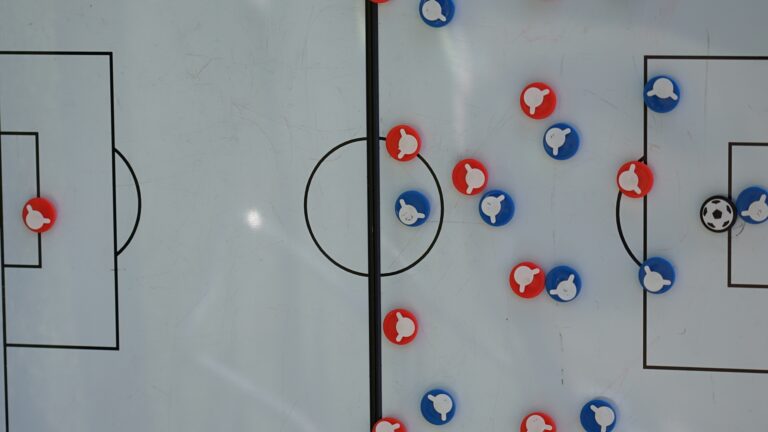Logical thinking is a critical skill for athletes and children who play soccer, impacting their performance on and off the field, and setting them up for success in the future. Here’s how:
On the Soccer Field:
Improved Decision-Making: Soccer is a dynamic game requiring constant analysis and quick choices. Logical thinking allows players to:
- Analyze situations: Assess the position of teammates, opponents, and the ball to make informed choices.
- Predict outcomes: Anticipate potential plays and choose the best course of action, like a through pass or a change in direction.
- Adapt to changing situations: Adjust strategies based on the flow of the game, reacting calmly to unexpected situations.
Enhanced Tactical Awareness: Logical thinking helps players understand and execute complex formations or plays. It allows them to:
- Recognize patterns: Identify openings in the opponent’s defense or weaknesses to exploit.
- Position themselves strategically: Move into spaces to receive passes or cut off opponents’ advances.
- Coordinate with teammates: Anticipate teammates’ movements and understand their roles in achieving a goal.
Problem-Solving Under Pressure: Soccer can be intense, with time constraints and pressure to perform. Logical thinking allows players to:
- Maintain composure: Stay calm and think clearly despite pressure or setbacks.
- Troubleshoot challenges: Identify solutions to overcome obstacles presented by the opponents.
- Learn from mistakes: Analyze their own actions and those of others to avoid repeating errors.
Benefits Beyond the Field:
Academic Success: Logical thinking skills honed on the soccer field translate to the classroom. Children learn to:
- Approach problems systematically: Analyze information, break down issues, and develop solutions step-by-step.
- Evaluate evidence: Critically assess information and draw sound conclusions.
- Formulate strong arguments: Build logical arguments and present their ideas effectively.
Lifelong Learning: The ability to think logically is essential for lifelong learning. It allows individuals to:
- Adapt to new situations: Approach new challenges with a logical mindset and a willingness to learn.
- Make informed decisions: Evaluate information, weigh options, and make sound choices in various aspects of life.
- Solve problems creatively: Think outside the box and develop innovative solutions to obstacles they encounter.
In conclusion, logical thinking empowers athletes and children playing soccer to excel on the field and prepares them with valuable skills for academic success and lifelong learning.

![投稿についてもっと詳しく [A Key to Success] How to Get confidence with mental toughness](https://www.sparklesocceracademy.com/wp-content/uploads/2024/12/u2441757251_a_fusion_of_soccer_and_brain_diagram_behind_a_soc_e3759932-9146-4368-a793-a552d71cb3ff_0-768x578.jpg)

![投稿についてもっと詳しく [What is inspiration?] teamwork Fundamentals](https://www.sparklesocceracademy.com/wp-content/uploads/2025/01/file-768x768.png)
